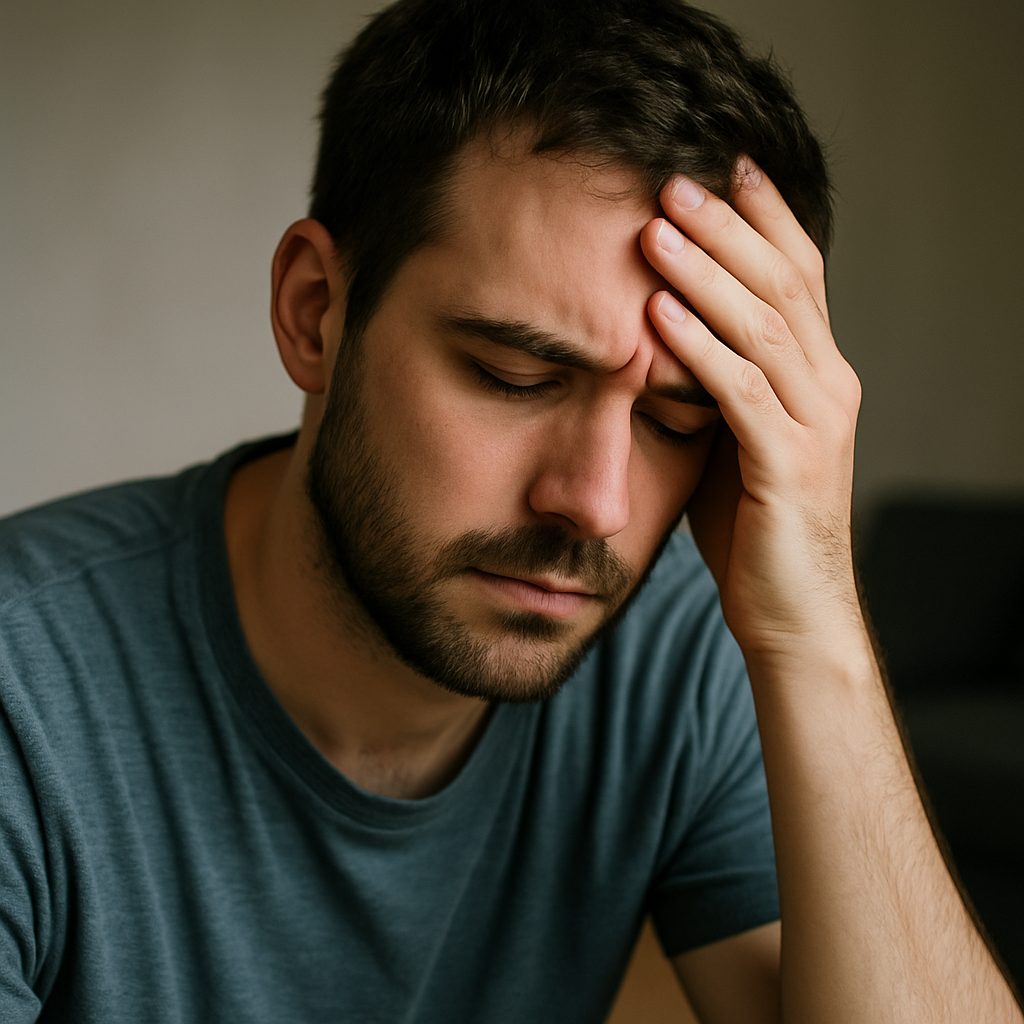🧪 Dopamine Exhaustion and Porn Addiction: A Chemical Trap


🧠 While relationship dynamics and emotional connection play crucial roles, hormones are the invisible engineers of our sexual desire.
📉 A hormonal imbalance can sabotage libido even when love and attraction are intact.
🧪 Understanding the hormonal landscape helps distinguish psychological from biological causes of low sexual desire.
👩⚕️ For both men and women, a healthy libido depends on a complex interplay of testosterone, estrogen, progesterone, cortisol, dopamine, and more.
🔥 Often called the “desire hormone,” testosterone plays a key role in sexual arousal for all genders.
🚹 In men:
– Low levels cause reduced libido, fewer erections, and fatigue.
– Common with aging (especially after age 40) or chronic illness.
🚺 In women:
– Lower testosterone contributes to reduced sensitivity and arousal.
– Declines sharply after menopause or surgical removal of ovaries.
🩺 Testosterone deficiency is often underdiagnosed — and misattributed to relationship issues.
🚺 Estrogen keeps vaginal tissue healthy, elastic, and lubricated.
🔥 Increases blood flow to genital areas, enhancing sensation.
📉 Drops during menopause can lead to:
– Vaginal dryness and pain
– Loss of interest in sex
– Emotional instability (mood swings, anxiety)
💊 Hormone replacement therapy (HRT) can dramatically restore comfort and desire when medically appropriate.
📉 High levels (such as during the luteal phase or pregnancy) can dampen libido.
😴 Causes drowsiness, calmness — but also emotional blunting
🔁 Imbalances between estrogen and progesterone contribute to mood instability and sexual indifference.
⚠️ A sudden progesterone crash postpartum is a major reason for reduced sexual interest in new mothers.
😓 Chronic stress leads to persistent high levels of cortisol.
🧠 Cortisol shuts down reproductive hormones like LH and FSH.
💔 It creates a biochemical environment of anxiety, fatigue, and low arousal.
📵 Modern stressors (phones, work overload, lack of sleep) constantly raise cortisol levels — sabotaging sexual desire
🌿 Stress management isn’t just about peace of mind — it’s about restoring the body’s ability to desire.
💧 Released after orgasm, prolactin induces feelings of satisfaction and calm.
📉 However, chronically elevated levels (from tumors, medications, or health issues) can:
– Suppress sexual desire
– Lead to erectile dysfunction
– Cause amenorrhea in women
🧪 Blood tests can reveal prolactin imbalances — a hidden but treatable cause of low libido.
💥 Dopamine: Drives motivation, pursuit, and reward — essential for erotic stimulation.
💞 Oxytocin: The bonding hormone — released during cuddling, kissing, and orgasm
📉 Low dopamine levels (common in depression, Parkinson’s, and burnout) reduce excitement and sexual energy.
💬 Connection without dopamine is warm — but not erotic. Desire needs that spark.
🦋 Both hyperthyroidism and hypothyroidism can alter libido and energy levels.
🛏️ Symptoms include fatigue, mood changes, and menstrual irregularities
🧪 A simple TSH test can uncover thyroid issues — an often missed biochemical barrier to intimacy.
💤 Antidepressants (SSRIs, SNRIs) — block orgasm and reduce libido
💊 Birth control pills — lower free testosterone in women
⚠️ Beta blockers — blunt arousal and reduce genital blood flow
🧠 Antipsychotics — suppress dopamine and prolactin
📋 Always weigh mental health needs vs. sexual side effects with a physician
👩🦱 Puberty: Surges in estrogen and testosterone increase libido
👩 Pregnancy: Progesterone surge suppresses sexual desire
👵 Menopause: Estrogen and testosterone crash → vaginal dryness, libido loss
📈 Perimenopause: Hormonal fluctuations cause emotional and sexual unpredictability
🧬 Each phase requires a different approach — hormone testing, lifestyle support, and sometimes medical intervention
📉 After age 35, testosterone levels in men decline ~1% per year
😴 Symptoms: low energy, reduced libido, muscle loss, depression
🧪 Often ignored or mistaken for midlife crisis
💊 Testosterone replacement therapy (TRT) may be helpful — but only with clinical supervision
📝 Ask yourself:
– Has my sexual desire dropped suddenly or gradually?
– Do I feel tired or emotionally flat most days?
– Has my sleep, weight, or menstrual cycle changed?
🧪 Request blood tests for:
– Testosterone (total and free)
– Estradiol
– TSH (thyroid)
– Cortisol
– Prolactin
– SHBG (sex hormone-binding globulin)
🧑⚕️ A thorough endocrine workup is essential before blaming the relationship.
🥗 Nutrient-rich diet: Zinc, B-vitamins, magnesium, healthy fats
🏃 Exercise: Resistance training boosts testosterone
🧘 Sleep hygiene: 7–9 hours improves cortisol and dopamine
☀️ Sunlight: Regulates melatonin, supports mood
🍵 Herbal support: Maca root, ashwagandha, ginseng (with medical advice)
🧬 If testing confirms imbalances and lifestyle changes are insufficient
💊 Options:
– TRT (testosterone therapy)
– Estrogen therapy (oral, patch, or vaginal)
– Progesterone supplements
– Thyroid medication
⚠️ Hormone therapy must be personalized and closely monitored to avoid risks
🧠 Hormones affect desire, arousal, orgasm, and emotional bonding
📉 Blaming yourself or your partner for low desire can cause more harm
🧪 Science shows us that what feels like “emotional distance” can sometimes be endocrine disruption
💬 The solution may lie in the lab — not just the bedroom
🧠 Low sexual desire isn’t always about feelings — it’s often about biochemistry
💬 Couples deserve to understand the full picture before feeling shame or blame
🧪 Hormone evaluation, guided support, and open communication can reignite passion
🌈 Reclaiming desire begins with understanding the body's signals
Comments
Post a Comment